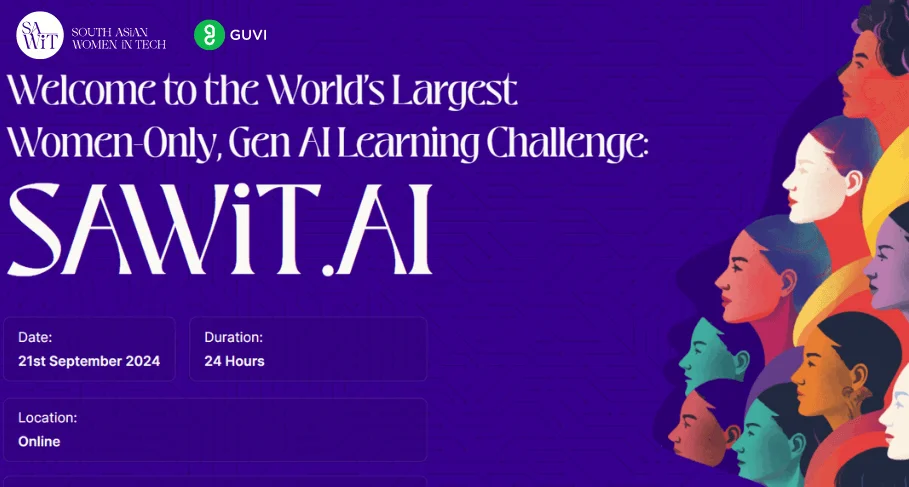SAWiT.AI, a joint venture between GUVI and South Asia Women in Tech (SAWiT), has recently announced an initiative to train 500,000 Indian women in AI skills. The initiative, the biggest women-only Generative AI Learning Challenge in the world, aims to close the gender gap in the workforce and establish India as a leader in AI innovation worldwide.
The programme will provide hands-on experience with leading AI tools, supported by a distinguished advisory council that includes Roshni Nadar Malhotra, Chairperson of HCL Tech, Samantha Ruth Prabhu, an acclaimed actor and women empowerment advocate, and Farzana Haque, a Senior Leader at Tata Consultancy Services. Those interested in joining the initiative can do so by registering on the SAWiT.AI registration page, and they will have to pay a nominal fee of Rs 99 for those willing to participate. The registration will close on September 18 2024.
A spokesperson of SAWiT stated, “With India’s female workforce participation rate at a mere 24 per cent, we believe there is an urgent need to bridge the gender gap and tap into the immense economic potential that women represent, she further added, “By equipping women with AI skills, the programme aims to empower them for career advancement and economic independence”.
The SAWiT.AI programme comprises an AI Learnathon, which will kick off on September 21, 2024, providing a hands-on learning experience in generative AI. A month later, a hackathon will focus on building applications based on generative AI. In November, a SAWiT.AI Festival will be held to celebrate Gen AI innovation and recognise outstanding participants and partners.
SAWiT. AI is an element of India’s economic development, not only training. This programme will equip women, close the gender gap, and propel India faster to a position of prominence in the world of AI. It is advised for all women, irrespective of their technical experience and academic achievements. This community offers networking, mentorship, entrepreneurship, skill growth, and recruitment opportunities.
India’s female workforce participation rate was a mere 24% in 2022, significantly lower than China’s 61%. This low participation rate is critical as over half of urban women are homemakers. According to research by the McKinsey Global Institute, only 10% more women in the workforce could result in.
